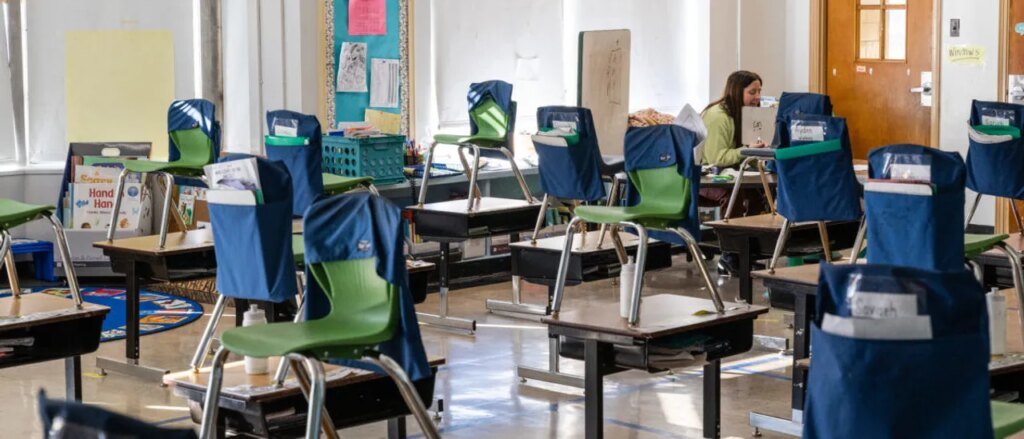The policies aimed at fostering “safe spaces” in schools, often described as godless by critics, have arguably led to increased dangers for students, affecting their mental and physical well-being. There’s a discussion around the need to reintroduce “religion” into educational settings, as highlighted by figures like President Donald Trump and Erica Kirk. Advocates for the LGBTQ agenda often proclaim that “if we can save just one life,” the effort is justified. But it raises a crucial question: what if one life is lost as a consequence? Is there a way to prevent even more tragedies?
It seems evident that K-12 classrooms in the U.S. have adopted strategies aimed at instilling particular ideologies in students. This indoctrination occurs without parental consent or awareness, embedding divisive views in young minds that often lack the maturity to comprehend such complexities, potentially leading to mental instability.
In simpler terms, educators and students appear to be facing a psychological crisis. There seems to be a systematic disregard for God’s truth, silencing of Christian voices, and promotion of misleading narratives. Supporters of these more progressive views argue that if schools become “safe spaces” for those who don’t fit conventional molds, then the controversies surrounding these approaches are somehow justified. But what if those very approaches endanger another student’s life? Take, for instance, the tragic case of a daughter who took her own life.
Critics of what some call “woke” ideologies argue that these efforts to plant unhealthy narratives in impressionable minds are actually creating unsafe environments in schools, encroaching on the privacy and rights of parents. A notable example is a 10th-grade student from a Rhode Island public school, whose gender transition was facilitated by school officials without her mother’s knowledge, highlighting the need for profound changes in how we guide children towards stable, fulfilling futures.
This student’s lawsuit challenges the narrative that links such transitions directly to suicides, suggesting that a more neutral approach might have spared her family from tragedy.
The transgender policies promoted in schools have not only brought about significant emotional distress but have also led to divisions within communities. However, there’s a glimmer of hope as recent federal laws and court decisions suggest a shift away from these contentious practices.
The Rhode Island Department of Education has initiated legal proceedings to overturn regulations supporting transgender advocacy. Yet, simply reforming or discarding these controversial theories may not suffice to address the mental health crisis confronting our youth. A generation’s well-being hangs in the balance, and reform alone seems inadequate. A revival, a return to foundational faith, appears essential to securing our children’s future.
Our youth require guidance rooted in faith and moral values. It’s argued that only by aligning education with divine principles can we counteract the harmful indoctrination prevalent today. Historically, schools nurtured not just intellect but also character, underpinned by shared moral values, which once cohesively bonded American society.
It’s believed that adhering to a faith-based model could potentially save more lives than the dangerous ideologies that contravene divine truth. The progression of God’s truth is unwavering, making it crucial to advocate for a return to faith-centered education in order to safeguard our children’s futures. This aligns with constitutional rights, as the separation of church and state ensures that the government does not impose a specific religion but also supports the free expression of religious beliefs.
Promoting faith-inspired education does not infringe on the First Amendment. This approach could foster cultural and spiritual renewal without mandating religious doctrine, respecting both individual freedoms and community values.
The current state of the Rhode Island Department of Education is viewed as deeply flawed, which underscores the importance of parents, concerned citizens, and local school boards in acknowledging and embracing God’s truth to restore wholesome, faith-based learning in schools.
If Jane Doe’s daughter had been grounded in these values, perhaps she could have been spared from personal and familial heartache, and we wouldn’t be facing the risk of losing a precious life.







